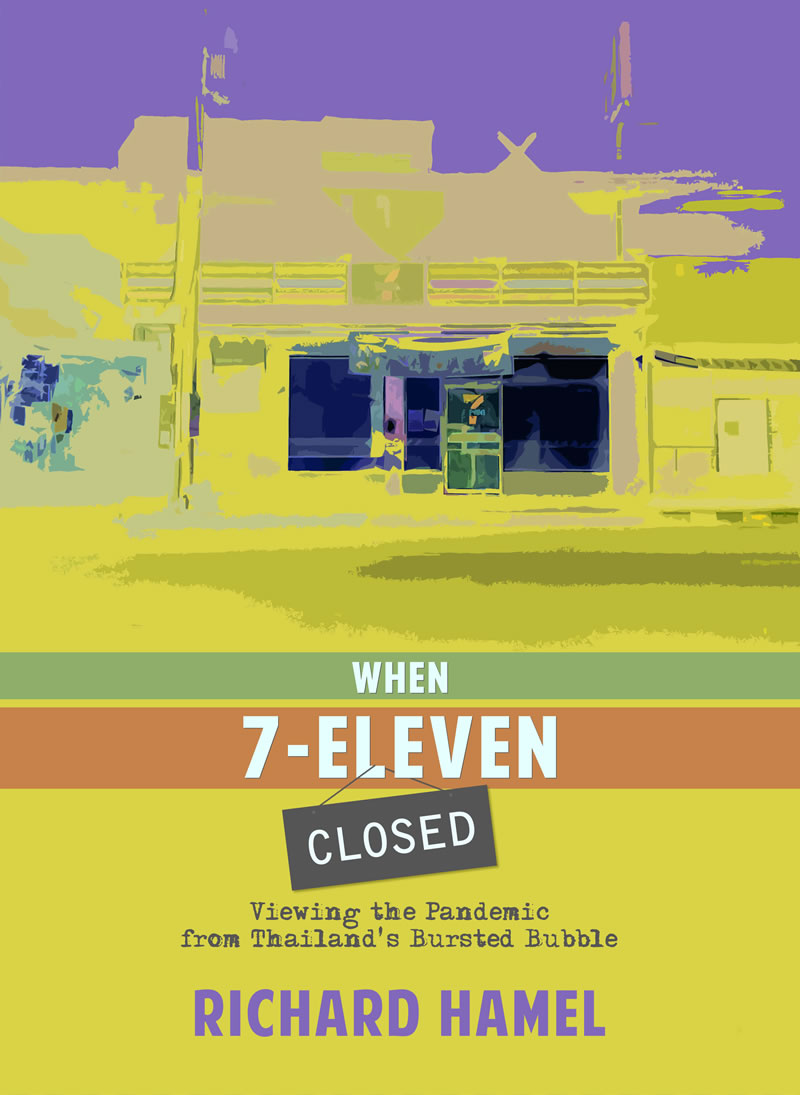Now Available: When 7-Eleven Closed

Where were you during the Coronavirus pandemic? Without a doubt, this will be a recurring question for the rest of our lives.
Richard Hamel, a veteran digital nomad living in Thailand, chronicles his life among a varied group of people who endured the COVID-19 pandemic. It was while several other social earthquakes ensued. While Americans watched their government’s system of checks and balances implode, the people of Thailand became embroiled in a political crisis that challenged the monarchy and military rule, all while much of their economy collapsed around them. It is when international travel was halted, and a change of venue was not possible. Not that the author desired to quest any further to find his elusive home. Aside from the economic misery, there was still profound joy and contentment in hand. So, why hurry back to America’s shit show?
The account takes place primarily in Chiang Mai, where COVID-19 was introduced early outside of Wuhan, China. Miraculously, the virus was late to take hold in the Kingdom. By no means is this to imply that Thailand was an oasis. The country had taken severe steps to protect its people early on. Thailand shut its doors to all arrivals and locked down the entire country for weeks. With diminished exports and closed factories, the economy spiraled to depths previously unknown for a country that has gone through a cascade of hardships in the past fifty years. For provinces dependent on tourism, the economic impact was even more devastating and will take years to return to pre-pandemic levels—if ever. But the struggle to get through the years 2020 and 2021 alive was not limited to only the pandemic. Ongoing problems of poisonous air in Thailand’s north, the insurgency in the south, and demands for an end to military rule throughout the country persisted.
After the lifting of the initial lockdown, the people of Thailand breathed a sigh of relief. The country had suffered limited Coronavirus cases and even fewer deaths. Thailand had thought to have dodged the virus bullet. Almost immediately, a semblance of normality returned. Restaurants, bars, and even live music events were safely reopened. Not unlike the namesake city in the movie Casablanca, the Chiang Mai refuge had its benefits; with restrictions also came special moments. Many of us that still had income streams had unique and pleasurable experiences that only a vacated world-class tourist destination could bring.
However, tourism, which had employed more than 14% of the workforce, collapsed. By mid-2020, 30% of all tourist-related businesses closed permanently. During this, we in Thailand watched the news numbly as more than three and a half million people died globally outside of our bubble, exacerbated by populations fighting among themselves out of impatience and fueled by a lack of government leadership and communal determination. We were grateful for being spared the virus’s agony, but our hearts broke for those who were harmed irreparably by the pandemic.
It was not until a year later that the dreaded second wave broke out, quickly followed by a far greater third wave. For one year, total deaths had stayed under sixty—for the entire country. By the start of summer 2021, that number climbed more than twenty-fold (and continues its upward trajectory at more than 20,000 new cases per day at the time of this writing.) This book is, however, a story of resilience.
>> Read some pages and get the book (or e-book) here.